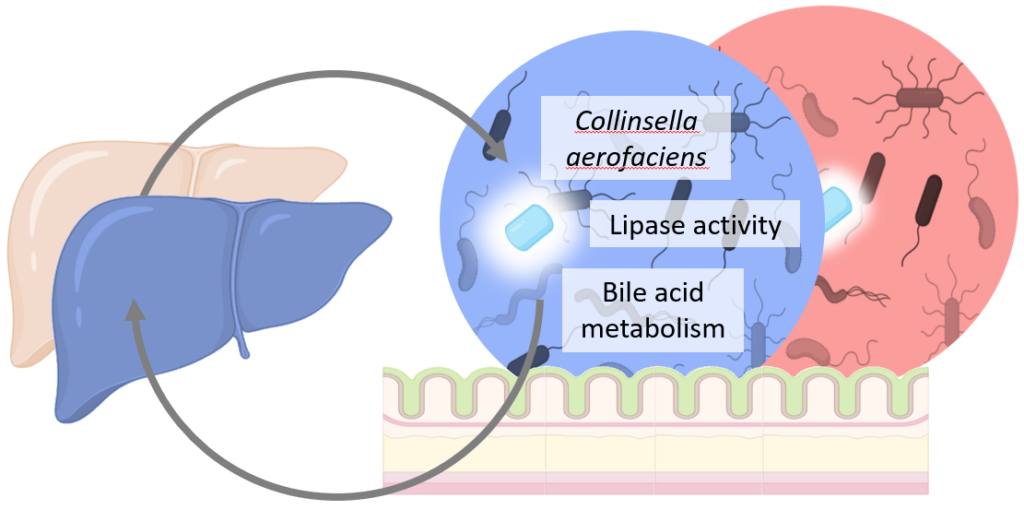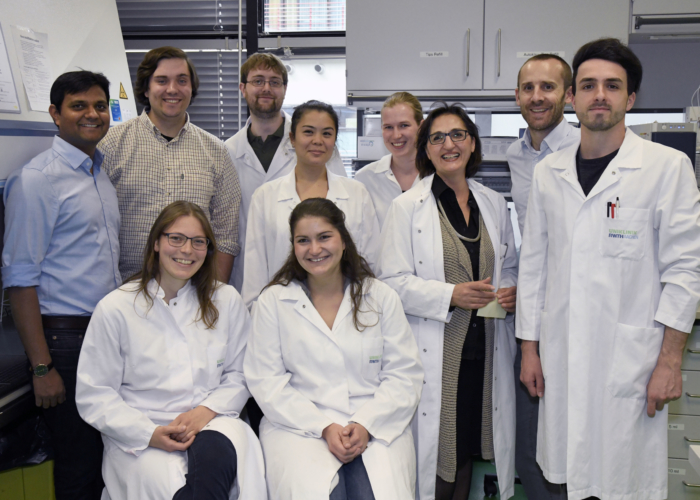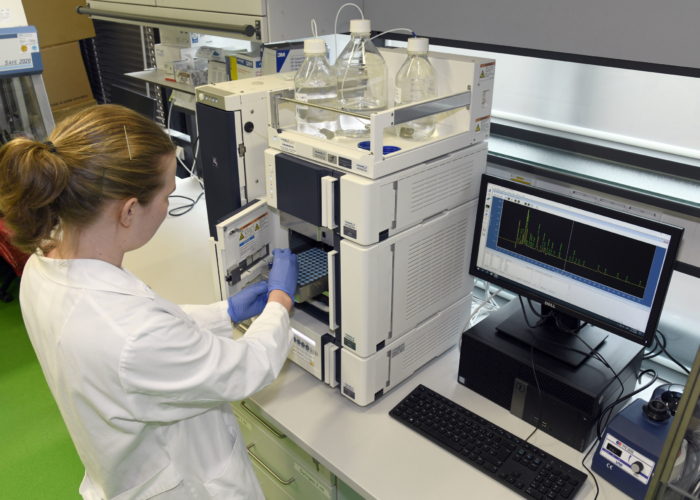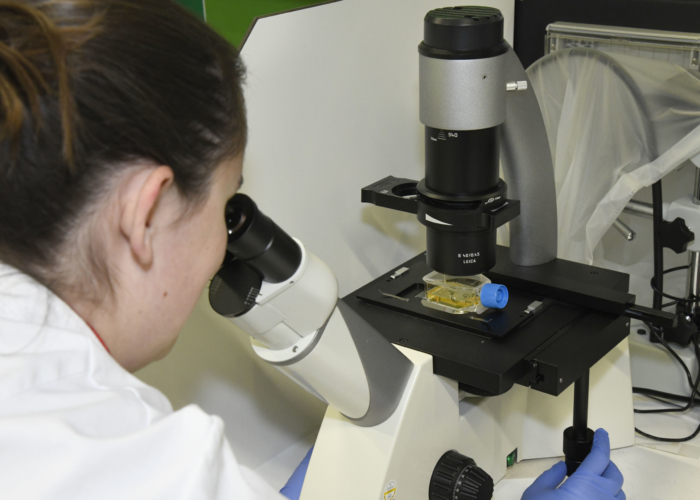A05: Functional analysis of lipid metabolism by the microbiome in gut-liver interactions
Lipid metabolism is a central metabolic function within the gut-liver axis. However, little is known about how bacterial lipolytic activities and bile acid metabolism influence liver functions and how this is regulated by ecological factors within the gut microbiome. In addition to bile acids the work will extend to bacterial lipases.

A05 will implement new experimental approaches to investigate the functional importance of lipid-metabolising bacteria in the gut-liver axis including the following three main aims:
- Characterise the diversity and functions of the dominant human gut species C. aerofaciens from healthy and individuals suffering from Non-alcoholic Fatty Liver Disease (NAFLD) at the strain level.
- Determine how metabolic interactions within microbial communities affectC aerofaciens functions
- Identify the impact of these processes on host liver functions in gnotobiotic mice



